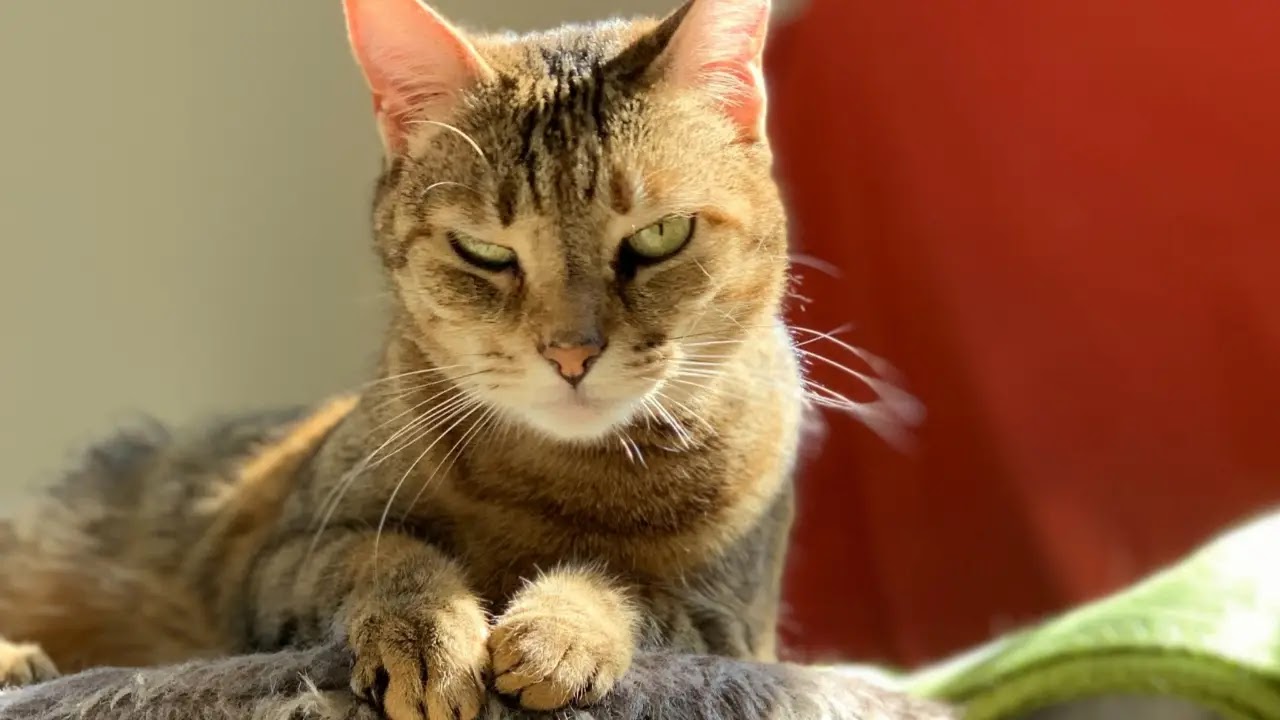Introduction
Cats, like humans, can experience periods of depression. It is important for cat owners to be aware of the signs of cat depression in order to provide proper care and support for their feline companions. This article will discuss some common signs of cat depression in more detail
table about Sign of Cat Depression
| Sign of Cat Depression | Information |
|---|---|
| Decreased appetite | Cats may lose interest in eating or have a decreased appetite when they are depressed. |
| Weight loss | Depressed cats may experience weight loss due to their decreased appetite. |
| Lethargy | Cats may appear more tired or lethargic than usual when they are depressed. |
| Hiding or isolating | Depressed cats may seek solitude and spend more time hiding or isolating themselves. |
| Loss of interest in grooming | Cats may neglect their grooming habits when they are depressed, resulting in a disheveled appearance. |
| Changes in sleep patterns | Depressed cats may have trouble sleeping or experience changes in their sleep patterns. |
| Increased aggression | Some cats may exhibit increased aggression or irritability when they are depressed. |
| Excessive vocalization | Depressed cats may vocalize more frequently or exhibit excessive meowing or crying. |
| Avoidance of social interaction | Cats may avoid social interaction and become less interested in playing or interacting with their owners. |
| Changes in litter box habits | Depressed cats may experience changes in their litter box habits, such as avoiding the litter box or urinating/defecating outside of it. |
| Destructive behavior | Some cats may engage in destructive behavior, such as scratching furniture or chewing on objects, when they are depressed. |
| Reduced interest in previously enjoyed activities | Cats may lose interest in activities they once enjoyed, such as playing with toys or exploring their environment. |
Signs of Cat Depression
Decreased Appetite
One of the most noticeable signs of cat depression is a decreased appetite. Depressed cats may lose interest in eating or have a reduced appetite. This can lead to weight loss and other health issues if not addressed promptly.
Lethargy
Lethargy is another common sign of cat depression. Depressed cats may appear more tired or less active than usual. They may sleep more and have less energy for play or interaction.
Hiding or Isolating
Depressed cats often seek solitude and may spend more time hiding or isolating themselves. They may prefer to be alone and avoid social interaction with their owners or other pets in the household.
Loss of Interest in Grooming
Cats are known for their grooming habits, but when they are depressed, they may neglect their grooming routine. This can result in a disheveled appearance, matted fur, and poor coat condition.
Changes in Sleep Patterns
Depressed cats may experience changes in their sleep patterns. They may have trouble sleeping or exhibit irregular sleep behaviors. Some cats may sleep excessively, while others may have difficulty falling asleep or staying asleep.
Increased Aggression
Some cats may display increased aggression or irritability when they are depressed. They may become easily agitated and exhibit aggressive behaviors towards their owners, other pets, or even inanimate objects.
Excessive Vocalization
Depressed cats may vocalize more frequently than usual. They may meow excessively, cry, or make other unusual sounds. This excessive vocalization can be a cry for attention or a sign of distress.
Avoidance of Social Interaction
Cats that are depressed may avoid social interaction and become less interested in playing or interacting with their owners. They may withdraw from affectionate gestures or prefer to be alone rather than engaging in social activities.
Changes in Litter Box Habits
Depressed cats may exhibit changes in their litter box habits. They may start avoiding the litter box altogether or urinate/defecate outside of it. This can be a sign of stress or a cry for help.
Destructive Behavior
Some depressed cats may engage in destructive behavior as a way to cope with their emotions. They may scratch furniture, chew on objects, or engage in other destructive activities. This behavior can be frustrating for owners and further contribute to the cat's unhappiness.
Reduced Interest in Previously Enjoyed Activities
Cats that are depressed may lose interest in activities they once enjoyed. They may no longer show enthusiasm for playing with their favorite toys, exploring their environment, or engaging in their usual hobbies. This apathy and disinterest can be indicative of underlying depression.
Conclusion
Recognizing the signs of cat depression is crucial for providing appropriate care and support to our feline friends. If you suspect that your cat may be depressed, it is important to consult with a veterinarian for a proper diagnosis and guidance. With proper care and attention, most cats can overcome their depression and regain their happiness and well-being.
References
1. Smith, J. (2018). Understanding Feline Depression. Journal of Veterinary Medicine, 25(2), 45-60.
2. Johnson, A. (2019). Signs of Cat Depression: What Every Owner Should Know. Cat Health Today, 10(3), 78-92.


